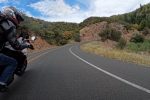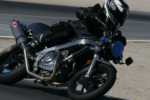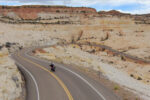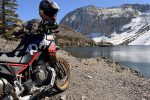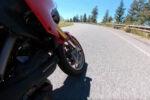Three Steps to Defeat Riding Fear
Fear is holding all of us back. Fear prevents us from becoming the riders we want to be. So what is fear exactly? Well, fear comes from our amygdala. Our lizard brain. You know, that little thing at the base of your skull that starts to tingle when you turn off all the lights in the basement.
What’s really interesting is that research has found that potentially scary things reach the amygdala, our lizard brain, before we are even consciously aware of that there’s anything to be afraid of. Like when a snake darts out of the grass. We react long before we consciously assess the risk.
So how do we defeat fear? How do we push that fear out of the way so we can be as fast and as bold as we really want to be; so we can keep up with the fast guys? How do we overcome fear, especially when we are taking part in a legitimately dangerous activity? Turns out how we defeat fear is different than what one might expect.
So we gotta’ remember that fear is looking out for us. It’s what, hopefully, keeps us from charging into a blind corner while in the oncoming lane. The lizard brain wants to keep us alive. Fear wants to keep us away from risky things and wants us in our comfort zone, right.

Where is your comfort zone? Is it the wide-open roads? The gentle sweepers? That one canyon where every corner is perfectly smooth and wide open with lots of visibility? Are there roads around you that scare you? How often do you ride them?
How many of us have played it safe and didn’t take the chance, missed out on something amazing because of fear? How many of us have avoided an opportunity because of fear? All of us. The answer is all of us.
There is this thinking in motorcycling, and you’ve heard it. I’ve seen other videos about it that basically say we need to be fearless. We need to put fear aside and be bold. That fear slows down learning. If we can get rid of the fear, we can progress in our riding quicker.
Here’s the thing, research has shown that we learn best when we operate at the edge of our abilities and just outside of our comfort zone. Which seems counter-intuitive. How can we be at the edge of our abilities and not be afraid? So I reached out to Trevor Ragan, who runs Learner Lab. He’s one of the foremost experts on how fear impacts learning.
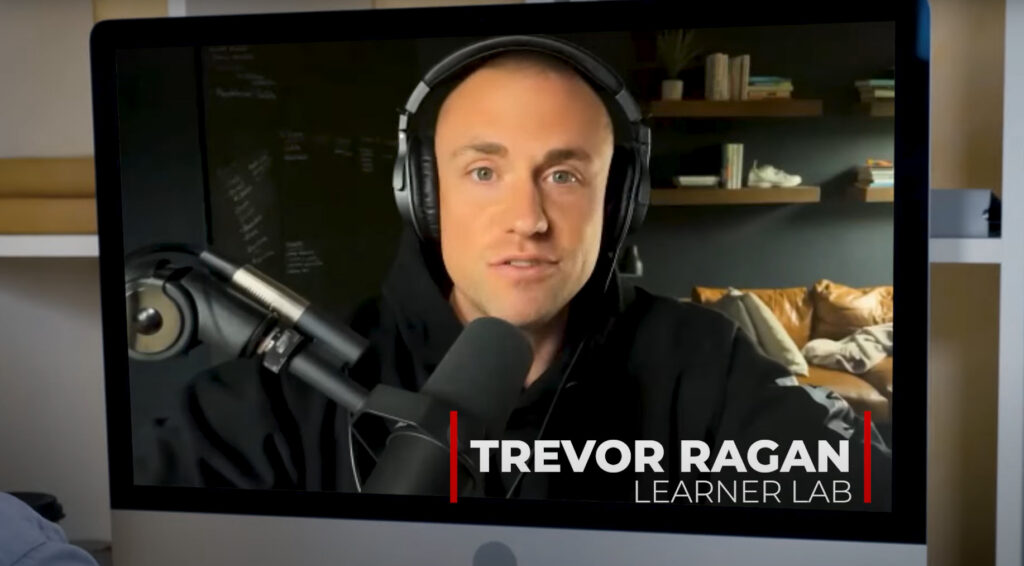
What do you need to do to become a better learner? Well, you need to practice more. You need to take action and it’s best if that action takes place, sort of, at the edge of your abilities. You need to be stretched a bit. And that, sort of, is the best learning zone.
Well, if you take two-seconds and think about what that feels like, it’s like, oh that’s not necessarily comfortable when you spend time getting stretched to the edge of your abilities. And so, just by working backward from that, it’s like, well. It seems like figuring out to deal with that discomfort is very important in the learning process.
Trevor Ragan
Fear gets in the way, right? I’m afraid of tight or downhill corners. So I start to believe I’m not good at tight or downhill corners, so I don’t spend much time working on that skill and then I become a rider who is not good at tight or downhill corners. Our fears rob us of the opportunities to practice; to become good at the skills we think are scary. That scary road we never ride.
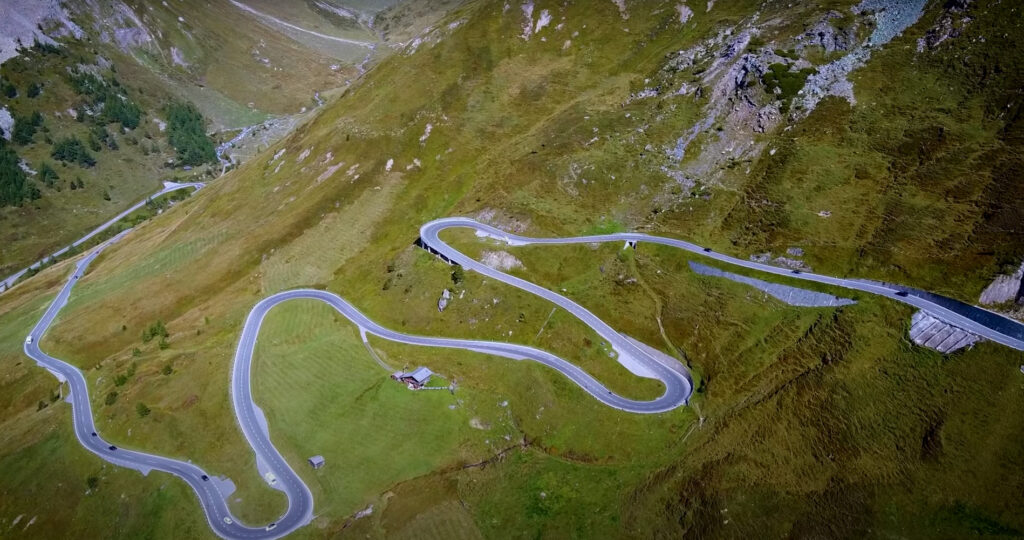
According to Trevor, when we boil it down, fear comes from a few key places.
Uncertainty is at the top of the list. And that comes in all sorts of shapes and sizes, but in a nutshell that one. This might work. This might not.
I think caring belongs on that list. Like, if I actually care about how this goes, I’m going to feel a bit more.
I think attention should be included on the list. And attention; there’s a lot of forms of that. It could be I’m being judged. People are watching me. People are listening to me.
I think change and struggle are… need to be included on the list.
Trevor Ragan
How many of those things show up in riding? Uncertainty. I’m learning a new technique. Trail braking. This might not work. I’m afraid to touch my font brake in a corner because I don’t know, I’m uncertain, how it’s going to go.
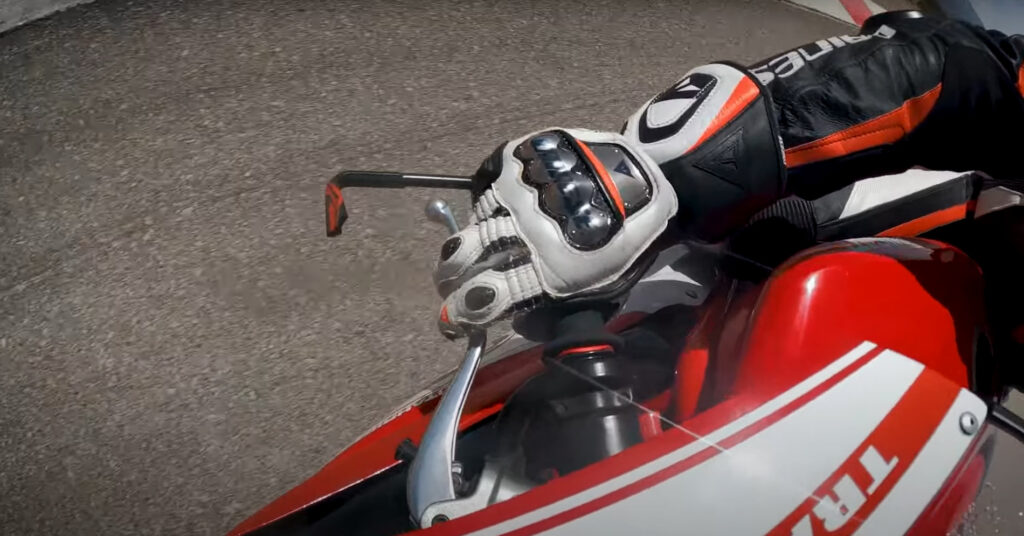
Caring. I care a lot about riding. It’s one of the greatest joys of my life. Yeah, I care. I don’t want to get hurt and then not be able to do this thing I love to do.
Attention. How many of you guys have not done a track day or a track school because you’re afraid of all the attention. Everyone will be looking at me. My riding will be judged.
Change and Struggle. Right? Changing how we sit on the bike, it can be a struggle to put our bodies in a crazy weird new position and suddenly how the bike feels changes; it different. It’s turning differently.
So as we strive to become better riders, we are getting hit with all the big factors that feed fear. So how do we beat, how do we defeat fear? Well, I learned that is exactly the wrong question!
Seth Godin said “If you are seeking to destroy, defeat, conquer the lizard brain you will fail. It cannot be done. Because when you try to fight the lizard brain you are giving it more power. When you push back on the lizard brain, when you try to reason with lizard brain, it inflames.”
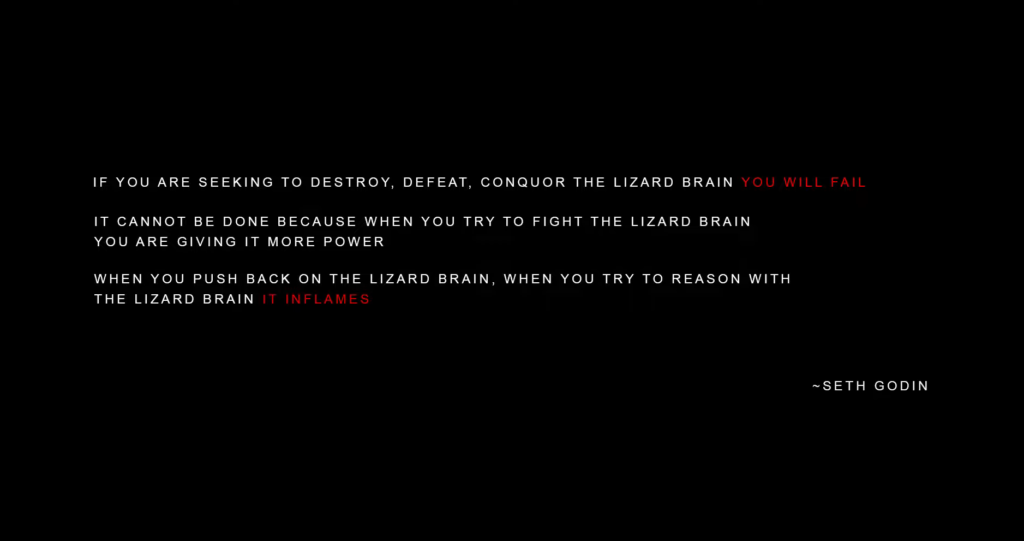
I’ve seen it a thousand times over the years. A rider pushes back on fear. Ignores it. What happens? When we ignore fear, fear grows into panic. And panic leads to fight or flight responses. We lose the ability to reason and think and that’s when the big mistakes happen. And on a motorcycle, a big mistake often means a crash.
Step one is explaining that to people. That what you’re doing right now involves some risk and uncertainty. And that’s going to create discomfort. And the fact that you feel this doesn’t mean you are doing something wrong. This means you are a human! It’s like, this is very human to feel this.
But how you’re feeling right now, is human, and expected and okay. Weather we’re talking to people who are, actually engaged in a dangerous activity, like… I’ve worked with police departments, fire departments, but I’ve also worked with major league baseball teams. The tactic is still the same. It’s, step one, giving ourselves permission to feel this. We’re not saying it’s fun. And we’re also not saying to be reckless. Like, Oh you’re emotions don’t matter. Just go and dive into them. All we’re saying is when you do something that stretches you out of the comfort zone it creates discomfort. That is okay.
Trevor Ragan
Have you ever been in this situation? We’re afraid, and then we start getting upset with ourselves for being afraid. The whole concept of “fearless” is bad. I hate it. It causes shame. I’m not supposed to feel this way. I’m not supposed to be afraid. Nobody else out there looks to be afraid!
The truth is, when we perceive fear as a negative thing, it makes it more powerful.
Susan David calls these type-two emotions. My feelings about my feelings. And those spawn from this flawed assumption that it’s bad to be nervous. It’s bad to be afraid.
Trevor Ragan
Fearlessness comes from a failure to understand the risk or consequences or significance of what we are doing. A fearless rider is an ignorant rider.
But that brings us back around to how can we reconcile with this powerful emotion. How can we square this emotion with reason?
A sergeant in the army said this to me, and it’s stuck with me for decades now because the wisdom of it was profound. He said “Fear is healthy, put your arm around it and listen to what it’s telling you.” In other words, fear is coming along for the ride regardless.
You get more bang for your buck by learning to accept and understand the tough emotions, rather than fight and suppress them. That when you try to fight and suppress, when you try to deny and get rid of them, more times than not, you magnify them, and it gets worse. And you actually take the power away from your emotions by accepting and understanding.
Trevor Ragan
Listen to what fear is telling you. Pay attention to where that fear is coming from. When we acknowledge the fear, pay attention to it, we take away its power. Harvard has done a couple of studies on the subject and what they discovered is If we are able to reframe fear as a positive, performance improves, measurably. The best way to deal with fear is to accept it. Develop the ability to listen to it and harness it for better performance.
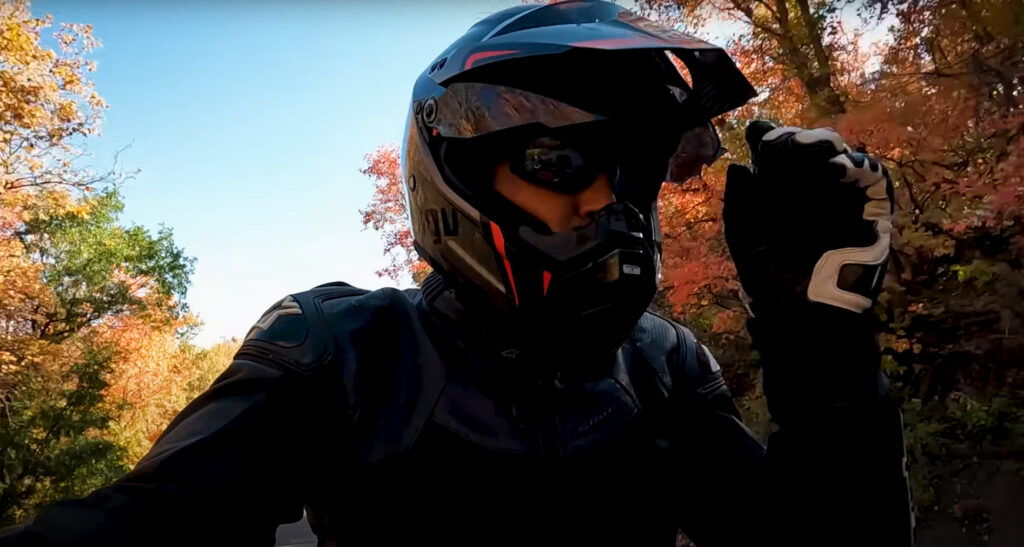
Oh, discomfort hurts performance. No it doesn’t. Misinterpreting discomfort hurts performance. The feeling itself, that doesn’t really matter. What really gets in the way of performance is when misinterpret the discomfort.
The easy way to think about this is if I’m working under the assumption that it’s bad to be nervous. That it’s bad to feel uncomfortable, now I’m in this situation. Weather it’s riding a motorcycle, singing a song, giving a presentation. If I assume it’s bad to be nervous, where is my attentive focus? On the nerves! Why am I feeling this? How do I make it stop? Versus someone else who is working under the assumption that, hey, it’s normal to be nervous, it’s normal to be uncomfortable, that’s okay. Now I can turn my attention to the task at hand. Not fighting this losing battle of making myself stop being nervous.
We only have so much focus and attention. I would argue focusing on the task rather than our emotions is a better strategy. The problem is when we’re always telling people to be fearless. When we’re always telling them to calm down. When we’re always telling them don’t be afraid. The end product to that approach is their attention is going to be on the discomfort.
You told me don’t be afraid, but I am afraid. Where is my focus? On the discomfort.
Trevor Ragan
When we can recognize fear to mean that I care. that I’m about to struggle, or there is going to be attention on me, it improves performance! Why? Because our senses are heightened, we are going to be more alert. How we frame or interpret fear matters. Put your arm around fear. It’s healthy. Fear is looking out for you. I mean, it’s coming along for the ride regardless, right?
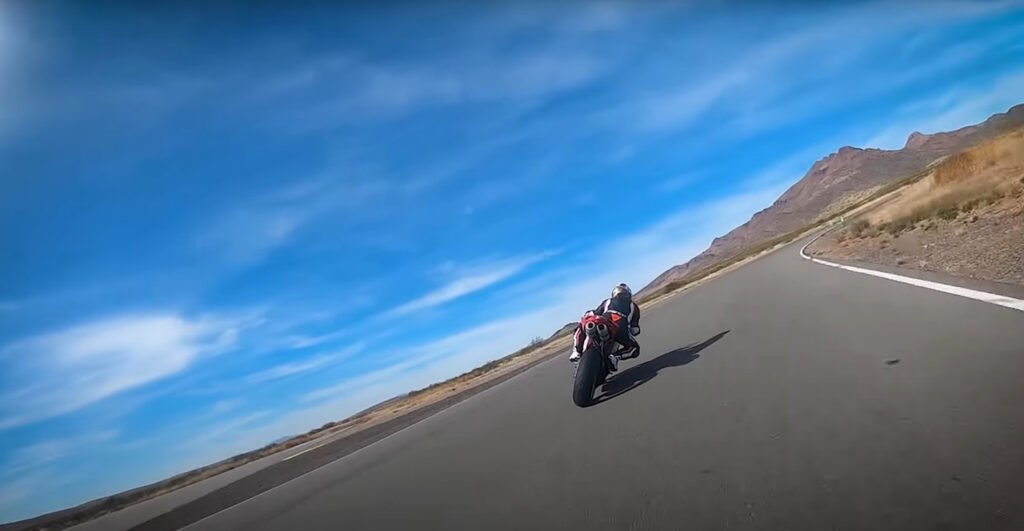
When we put our arm around fear and listen to what it’s telling us. Think of those causes of fear. Am I nervous simply because I care? Am I scared because I lack the skills?
Maybe the truth is I’m not prepared. And that’s okay. That’s fixable. But there are times when you are prepared and you are still going to be uncomfortable. And that’s what I learned from working with Olympic athletes, major league baseball players… It’s like, they get nervous too. They get nervous too. But, because they put themselves in those situations, hundreds, thousands of times, they learn; just because I’m nervous that doesn’t mean I’m not ready.
And it’s such a powerful lesson. And that’s not just for Olympians. And that’s not just for major league baseball players. That goes for every human!
Trevor Ragan
The lizard brain will always choose easy over hard. It’ll always play it safe. Its why we want to sit at the back of class, and why we are reluctant to ask a question. It’s why we hate public speaking. Its why we procrastinate. We tend to find justifications to reduce our exposure to fear. We make excuses.
I can’t tell you how many riders I’ve known over the years who have allowed fear to deny them amazing learning opportunities. Fear has prevented them from doing track days or even doing the Champ Street school. I don’t have the right bike. I don’t want people to see how bad of a rider I actually am. I don’t want to be judged. I don’t want to look stupid. I don’t want to be the slowest rider on the track.
Here’s the thing. If we want to get good at something, we have to be at the edge of discomfort, right? We have to be pushing ourselves. But wouldn’t it be better to be at the edge of discomfort in a relatively controlled environment, where we don’t have to worry about oncoming traffic, or gravel or animals darting out in front of us?
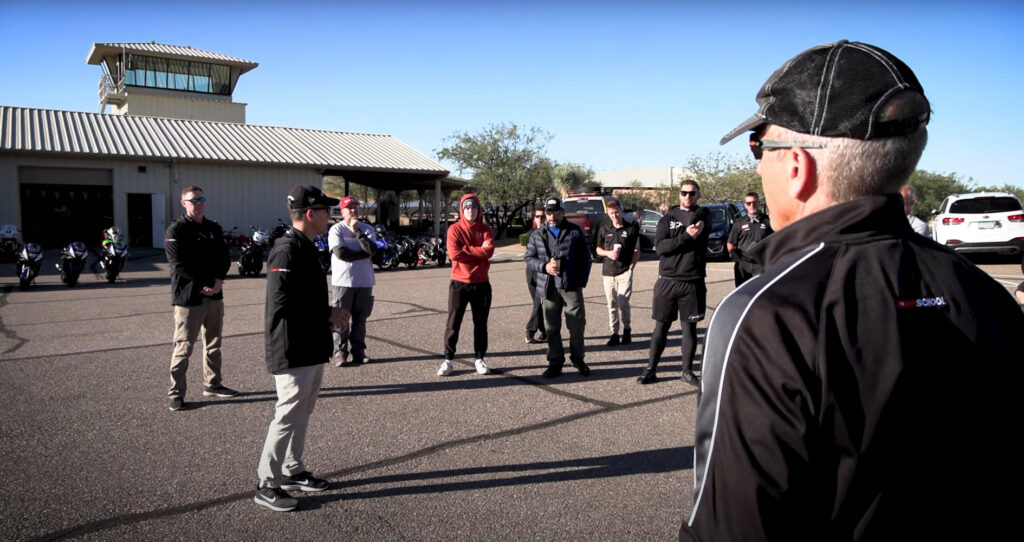
Training is an amazing way to defeat fear. I’m far less afraid of blind or downhill corners anymore because I’ve had incredible amounts of training dealing with those situations. Not only have I seen them time and time again, so there is less uncertainty, but I have a strategy going into every corner. I have less uncertainty because I know how, and I have practiced how to go to the brakes mid corner. I know what it feels like. I know how the bike behaves when I do.
I really want to thank Trevor Ragan from the Learner Lab for volunteering his time and knowledge. He has this amazing free audio book called “Learner.” It has an entire chapter about overcoming fear, but honestly, the entire book about becoming a better learner is just fantastic. Give it a listen.
